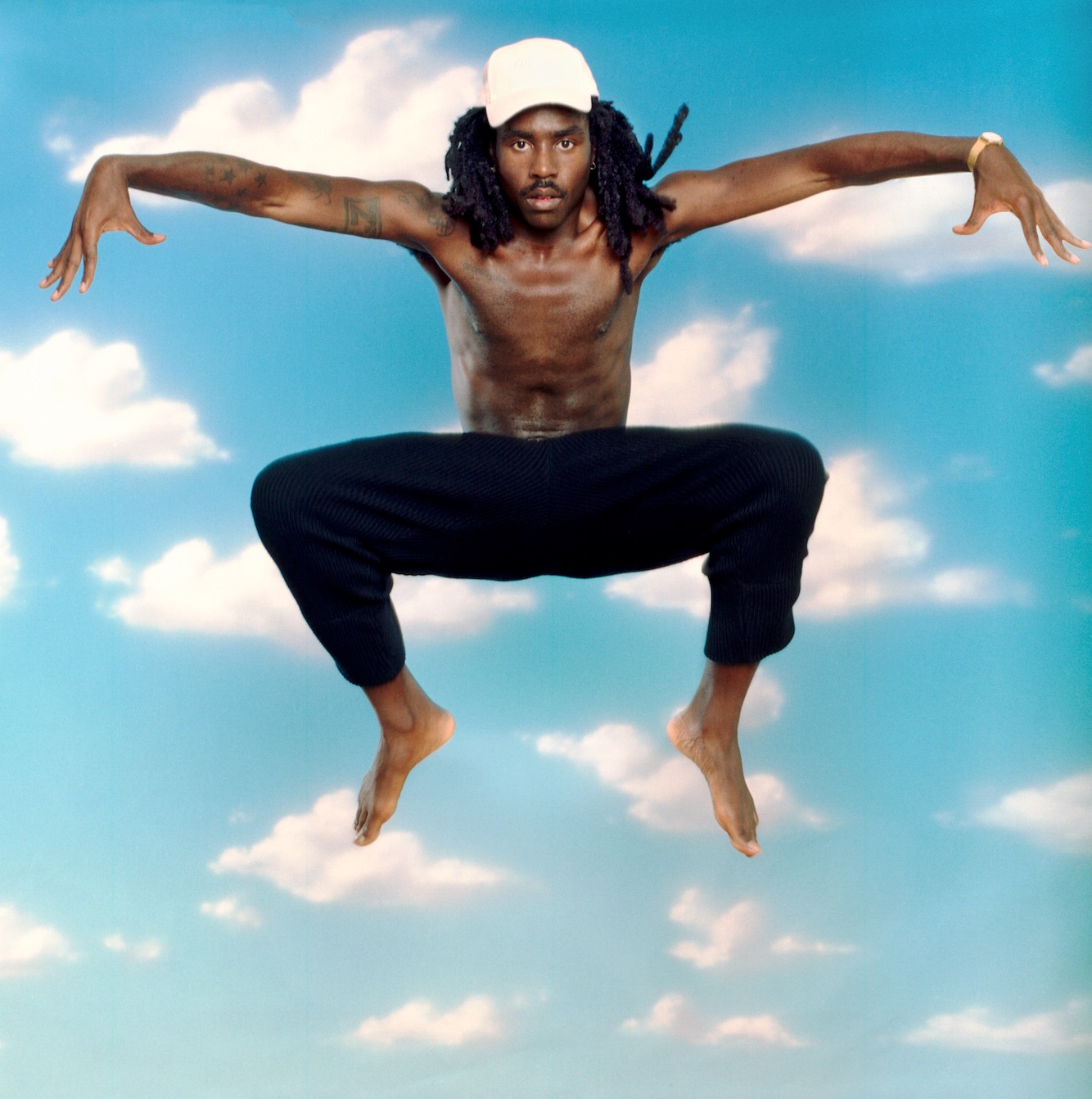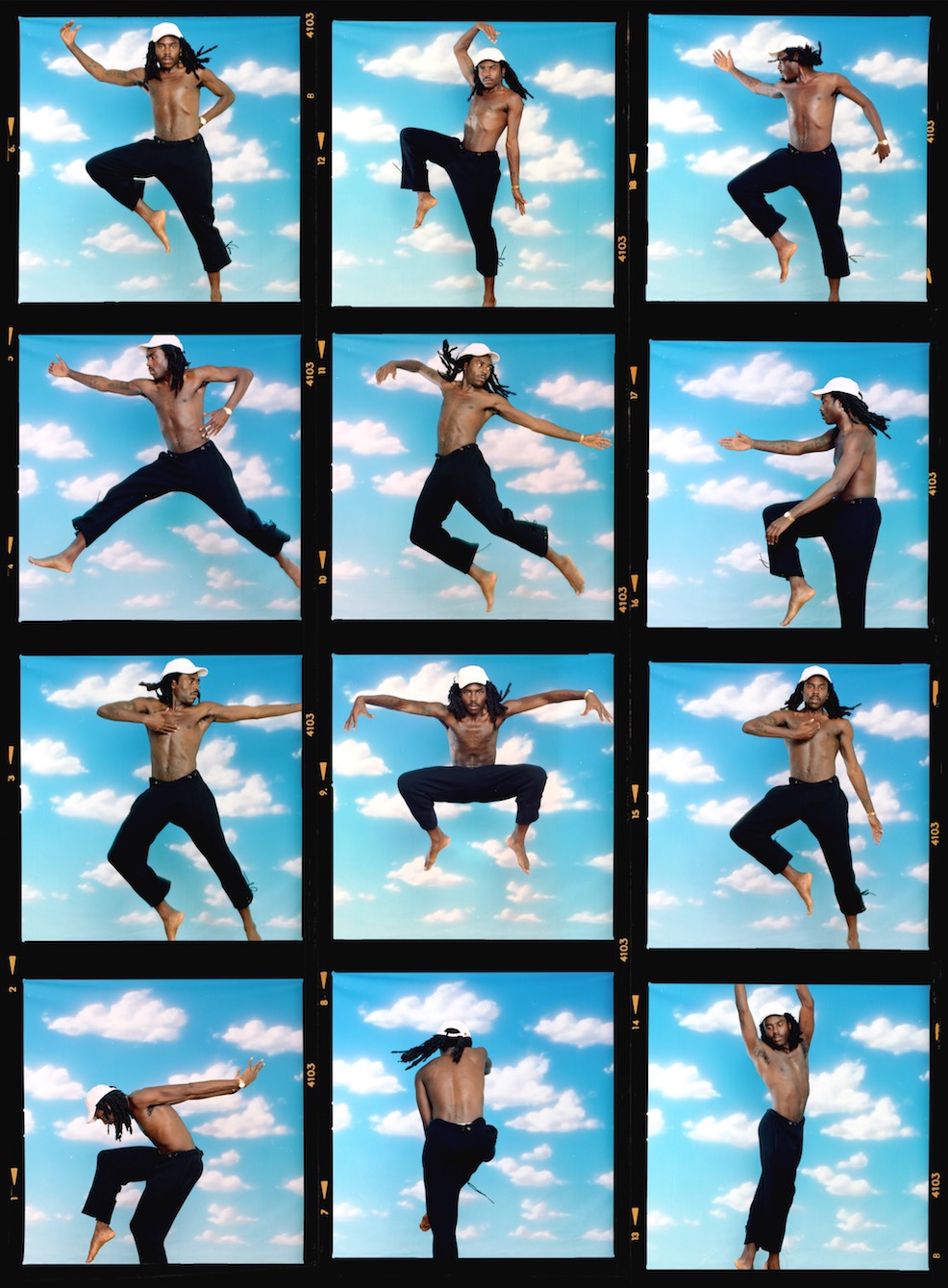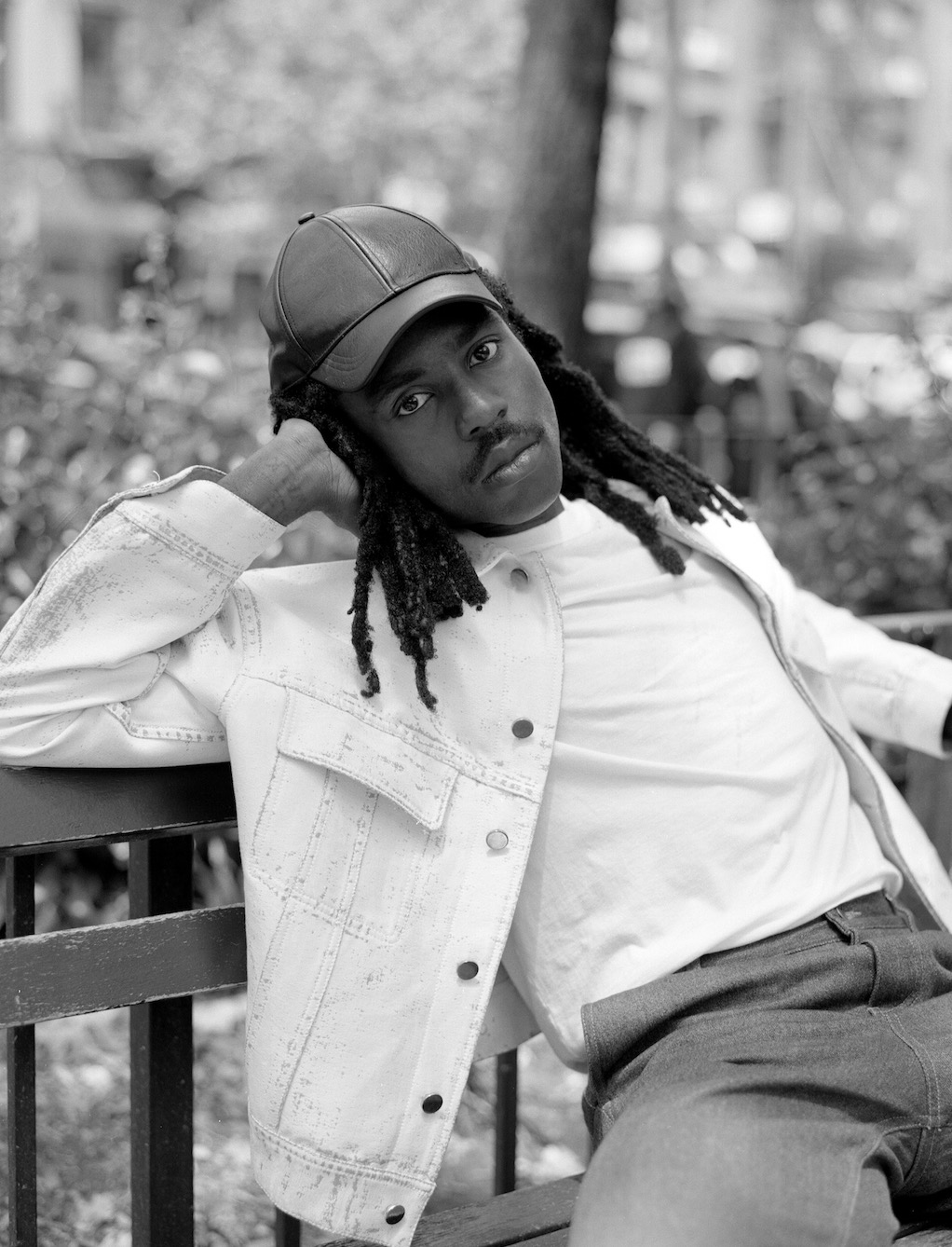Devonté “Dev” Hynes is one of pop music’s most important figures. The songwriting mus- cle behind Sky Ferreira’s breakthrough banger “Everything Is Embarrassing” and Solange’s equally mesmerising “Losing You” (as well as songs by everyone from Skepta to FKA twigs), he’s spent the last decade moulding his very own perfect-pop utopia, and surrounding him- self in New York’s scintillating, underground creative forces. This summer, as Blood Orange, Dev returns with his most honest, bravest long-player to date, Freetown Sound. Rollacoaster was invited into Dev’s brave new world for an exclusive, up-close-and-personal preview of it.
Wonderland.
Rollacoaster: Dev Hynes' Utopia
Taken from the 20th issue of Rollacoaster, we take a look inside Dev Hynes’ utopia ahead of the release of Freetown Sound, his third album as Blood Orange.

Black leather hat DEV’S OWN, white cotton tshirt by AMERICAN APPAREL and jeans by PATRIK ERVELL



Bucket hat by KANGOL, track pants by OPENING CEREMONY, tartan and fur loafers by GUCCI and tshirt DEV’S OWN


From the US to the UK, political upheaval is Trumping creativity. At least the artists have their messiah in the enigmatic form of Dev Hynes, who this summer returns with his solo project, Blood Orange.
The London-born musician, who has resided in New York City since 2007, along with releasing an upcoming beautiful and bold album, Freetown Sound, maintains a community of artists, musicians, models, and performers in New York like (previous Rollacoaster star) Whitney Vangrin. In his support of others, Hynes manages to come across completely unpretentious, a difficult feat for a celebrity of his status. “Everything I do is really how I want to be treated,” he tells me. “That’s the only way I base anything. I’m also still just a big fan-boy of things, so if I’m a fan of something, and it’s something I know or am in a proximity with, then if there’s anything I could possibly do to help them in some way, then I will do it. I just want them to create as much as they can.”
Hynes sits in his Manhattan studio bathed in je-ne-sais-quoi spirit, his red bucket hat tilted skywards to reveal passionate eyes. In July, Freetown Sound, his third album, the follow-up to 2013’s acclaimed Cupid Deluxe, comes out. Like a beautiful natural disaster, a thunderstorm collecting weight before pouring down on parched land, his creative process involves the collection of ideas and sudden appearance of arrival. “With each album, I’ll be working — just always making music, and it’s scattered and everywhere. It’s what happened with this one, it’s what happened with Cupid Deluxe. One day someone could talk to me and say: ‘What’s up with the album?’ and I’ll be like: ‘God knows, it’s like a million songs. I can’t imagine.’ And then the next day it can just click.”
What came together with Freetown Sound is an expansive, immersive, and glorious album. 17 tracks long, it’s being praised as Blood Orange’s most personal album to date, although Hynes says that maybe we just know him better now. Or perhaps we’re just paying more attention. “The last record was completely my viewpoint, too. Maybe it’s that people know me more. So they can really see that’s it’s personal. It’s personal in a different way, because it’s more explorative of myself. This one is kind of going back in even deeper than myself and looking at my parents and before that. It’s trying to understand roots of things, musically and lyrically.”
The title derives its name from his father’s birthplace, the capital of Sierra Leone. His family is also referenced in the record’s lyrics.“My father was a young man, my mother off the boat, my eyes were fresh at 21, bruised but still afloat,” he sings sleekly in a track titled “Augustine”. It’s an earth-shattering song, laced with sorrow that calls to Saint Augustine over the death of Trayvon Martin. Along with religion, race, sexism, Hynes’ heritage is a recurrent theme of the expansive album. He tells me that his family’s role as muse on the record is the simply the result of passing time. “I’m just getting older, and I have more questions and thoughts,” says the songwriter. “I’ve been very aware lately of age. It’s always hard to discuss it without sounding incredibly morbid.”
Despite how Planet Pop, where remaining fuckable is part of the deal, wants its stars to remain growing older, Hynes has his own agenda. “I love age. I always have. I think it’s because I grew up with classical and jazz [music], where age is very different than in popular music. If I was to look at the career of a composer that I love and if I saw things he wrote in his 30s, I would view that as before he found his voice,” he explains. “As I’ve got older, I’ve realised that people that have been huge influences on me were really young when they died. I’m not talking 27, of like drug overdoses and shit like that. John Lennon, John Coltrane, Arthur Russell, all died at 40. Bob Marley died at 36. Shit is so crazy to me. So it’s been very heavy on my mind lately, and I’m trying to understand a lot of things to do with myself and my family, because I feel it’s important to know this stuff and try to work through it for my own benefit.”
Christianity and an “album of the year” may seem unrelated, but it’s an unlikely union made flesh by Hynes, who scrapes away at his own history with the observational curiosity of a scientist.“There’s a lot of looking at Christian upbringing and then rebelling against it. There’s different moments on the album that are looking at those periods, Roman-era Christianity and then even colonial Christianity in West Africa. It’s not in a sense of condemning or preaching, it’s just in the case of questioning. It’s very interesting to me.” What he’s getting at is bigger than religion: it’s the promise of hope. “Christianity was so strong in black households because of slave times, and it was always seen as this beacon of hope. Even if it was this Christianity that was handed down, the ideology was still seen as a beacon of hope. Like: ‘We’ll get through this shit, there’s a bigger plan, you know?’”
Later this summer, he’ll take on Bonnaroo Music and Arts Festival in Tennessee, too.“I like to let the album breathe and [go] from there, because I don’t do many shows. I like the shows to be really fun and entertaining for people that know the music. I love the idea of playing music no one’s heard; I would do it in situations where I just use my name. I love the idea of making music for a live situation, [but] I’ll never do that with Blood Orange because I think it’s a bad vibe when artists just play a bunch of new songs for people. When it comes to Blood Orange, I want to play it for people who have listened and want to hear it.” As summer rolls into fall, Blood Orange’s Freetown Sound will be our anthem album. For now, Dev will be enjoying the splendour of his self-made utopia.


Knit trousers by J W ANDERSON and hat DEV’S OWN




Black leather cap DEV’S OWN, jacquard denim jacket by CALVIN KLEIN COLLECTION, cotton t shirt by AMERICAN APPAREL and jeans by PATRIK ERVELL

